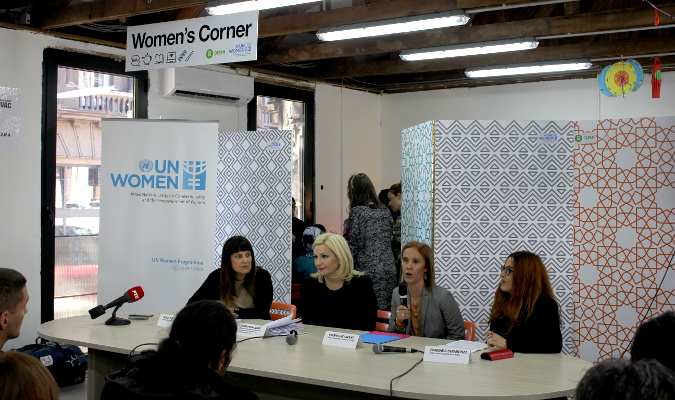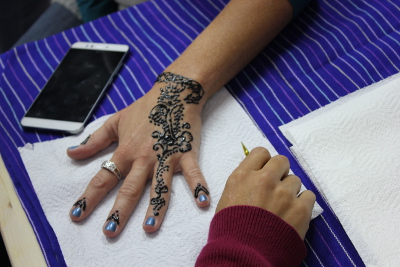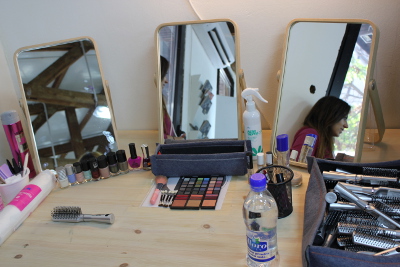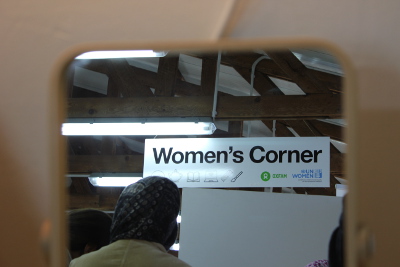Women refugees and migrants get a place of their own
Complete with Middle Eastern music, smells of home-cooked recipes and plenty of smiling faces, Women’s Corner officially opened its doors in Belgrade.Date:

“I crossed borders seven times, I was arrested, walked for a week without a break. Now I am here [in Serbia] for two months and I gave birth to a baby girl 11 days ago. This Corner means a world to us,” says Ferista, who left Afghanistan while seven months pregnant. She is one of a couple of hundred women who visit the Miksaliste refugee transit centre in the Serbian capital every day.

The Women’s Corner in Belgrade, a place where women refugees and migrants mingle with Serbian women to exchange experiences, feels like a best friend’s living room. Officially opened on 6 October with support from UN Women in Serbia and Oxfam, the Women’s Corner is part of the Refugee Aid Miksaliste transit centre, and offers a safe place for women to rest and take their mind off their long journeys and uncertain futures.
The Miksaliste transit centre opened its doors just over a year ago for migrants and refugees to receive food, clothes, medical assistance, hygiene products. More than 130,000 refugees and migrants have received assistance since its opening, serving up to 1,000 people a day in the peak of the refugee crisis.

Maja Lalic, director of the Miksaliste transit centre, had long been trying to find a way to support women refugees and migrants beyond providing these basic necessities, some of which were supplied through UN Women and Oxfam. “We asked the women to propose what they wanted apart from food, water, clothing. We saw a spark of joy in their eyes because no one had asked about such needs of people fleeing war,” Lalic said.
As part of the transit centre, the new Women’s Corner brings an added dimension of safety and comfort for women and girls that includes space for music, discussions, artistic workshops such as henna painting, and even meditative relaxation.

According to Zorana Mihajlovic, President of the Government of Serbia Coordinating Body for Gender Equality, it is above all our human obligation to help women and girls refugees and migrants. “We want to be with these women and girls and we must never forget that they are the most vulnerable group,” Mihajlovic said at the opening of the Women’s Corner.
Milana Rikanovic, Head of UN Women in Serbia, expressed her hope that Women’s Corner will eventually develop business initiatives among women in Serbia, refugees, and other women’s groups. “It is very important to understand that women refugees are those who currently need help, but they can also provide help,” said Milana.
Barbara Chiarenza, Humanitarian Protection Manager for the Refugees Crisis at Oxfam envisions empowerment workshops that will provide a safe space for women and girl refugees to socialize, while also promote small and medium-size business.